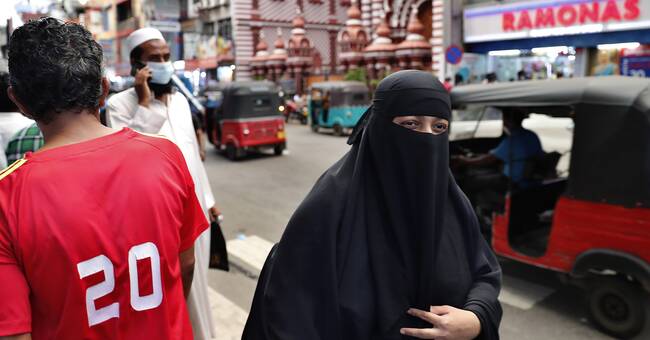The country's Minister of Public Security, Sarath Weerasekara, tells the BBC that he has signed a cabinet order banning cans.
Parliament's approval is now required before the ban can possibly become law.
The decision comes less than two years after Sri Lanka was hit by a wave of coordinated terrorist attacks targeting Catholic churches and tourist hotels.
The terrorist group Islamic State took on the deed that resulted in the deaths of more than 250 people.
"Signs of extremism"
Shortly after the attacks, a temporary ban was introduced on clothing that covers the face, but now the government wants to make it permanent.
"The can has a direct impact on national security," Weerasekara said on Saturday.
- It is a new sign of religious extremism.
We will definitely ban it.
The government also plans to close more than 1,000 so-called madrassas, a kind of school for Islamic studies.
The schools in question are accused of not following national guidelines regarding education and not being properly registered with the authorities.
Requirements for cremation
The Sri Lankan government has in recent years introduced several measures with the cape aimed at the country's Muslim minority.
One year ago, for example, a requirement was introduced that all people who died with covid-19 must be cremated.
Cremation is in line with Buddhist traditions but aroused opposition among many Muslims who traditionally bury their dead.
However, the requirement for cremation was abolished earlier this year after being met with strong criticism from, among others, the United States and several international human rights groups.

